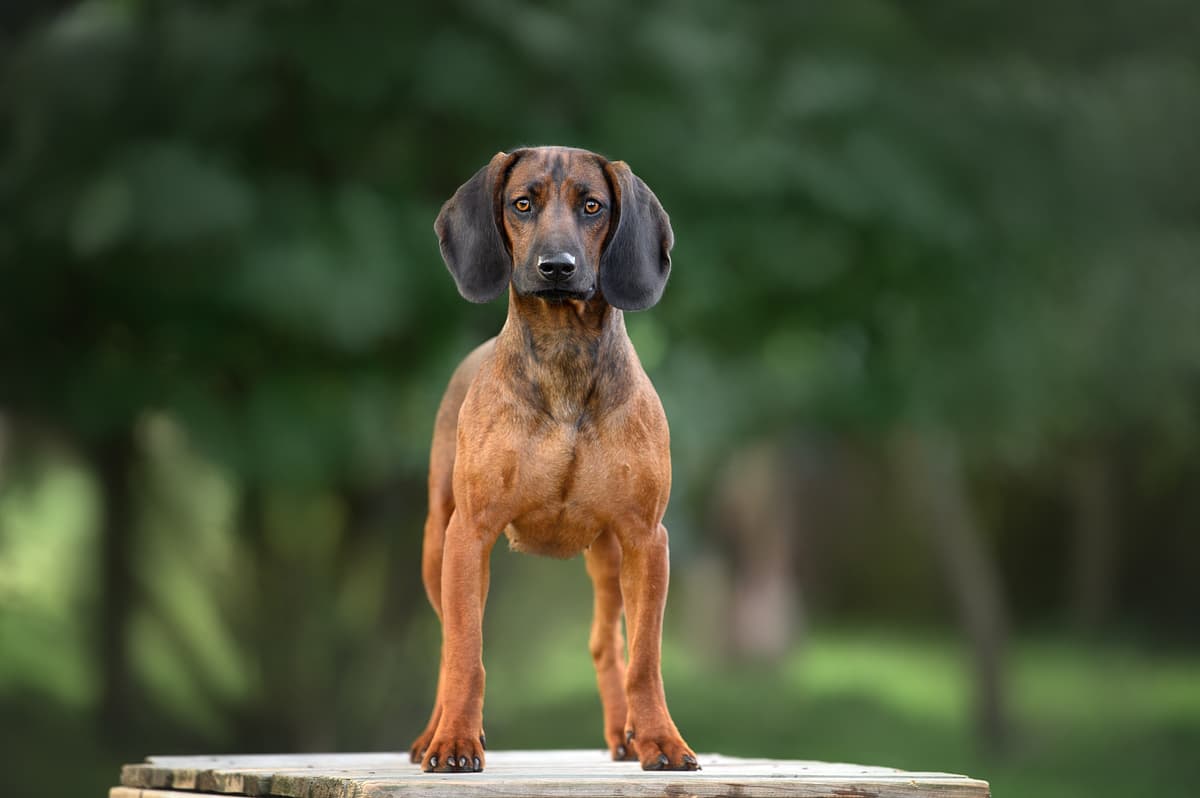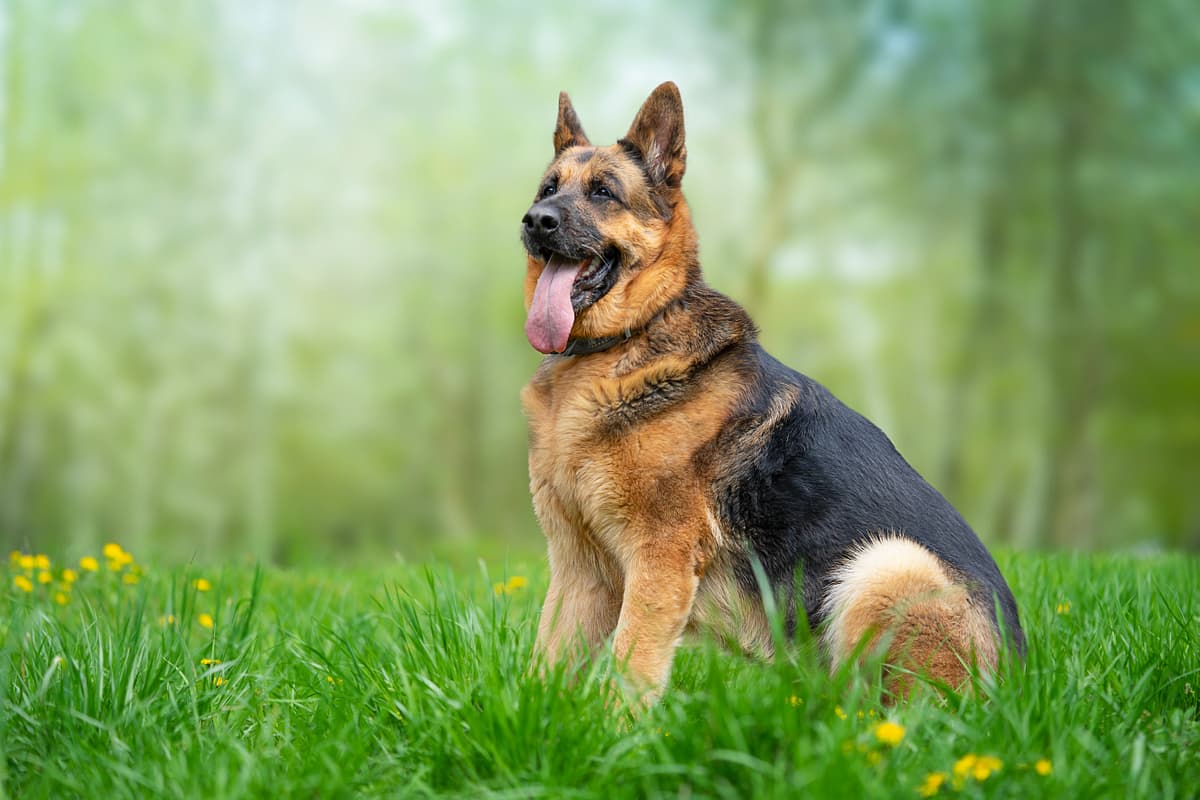Bavarian Mountain Hound vs German Shepherd
Discover the differences between Bavarian Mountain Hound and German Shepherd to make the best choice for your situation.
Try different breeds

Bavarian Mountain Hound
A loyal and determined scent hound with a calm, reserved nature, the Bavarian Mountain Hound thrives on companionship and purposeful activity. Sensitive yet fearless, this breed forms strong bonds with family.

German Shepherd
Confident, loyal, and highly intelligent, this breed thrives as both a devoted family companion and a reliable working partner. Always alert and eager to learn, it adapts to many roles with ease.
Quick comparison
Medium
20–25 kg
Short, dense
10–14 years
18–23 kg
Moderately active
Large
30–40 kg
Double coat, dense undercoat
9–13 years
22–32 kg
High energy
Personality & behavior
Compare the personality traits and behavioral characteristics of both breeds.
Bavarian Mountain Hound
Reserved with strangers, loyal to family
Quick learner, responds well to training
Needs regular exercise and mental stimulation
Moderate play drive, prefers purposeful activity
Adjusts best to calm, consistent environments
German Shepherd
Warm with family, reserved with strangers
Quick learner, highly trainable and alert
Needs regular activity and vigorous exercise
Enjoys games, interactive and engaging
Adjusts well to new situations and environments
Care needs
Exercise, grooming, and daily care requirements
Bavarian Mountain Hound
Hip dysplasia, ear infections
German Shepherd
Hip dysplasia, elbow dysplasia
Suitability
How well each breed fits different living situations and families
Bavarian Mountain Hound
Challenging for beginners
Requires experienced handling and consistent training
Not ideal
Needs ample space and regular outdoor activity
Highly suitable
Enjoys vigorous exercise and plenty of activity every day
Cautiously friendly
Tolerant but may be reserved or aloof with young children
Possible with care
May chase smaller pets due to strong prey drive
Prone to anxiety
Dislikes being left alone for extended periods, may develop behavioral issues
German Shepherd
Challenging for beginners
Needs experienced, consistent training and socialization
Not ideal
Needs space and frequent exercise to prevent boredom
Perfect fit
Thrives with active owners who can provide daily physical and mental challenges
Highly suitable
Loyal and protective, can be gentle and patient with proper socialization
Usually compatible
Can get along with other pets if raised together and well socialized
Prone to anxiety
Dislikes being left alone for long periods and may develop behavioral issues
Breed strengths
What each breed excels at and their best qualities
Bavarian Mountain Hound
- Excellent scent-tracking abilities
- Loyal and devoted to family
- Calm and even-tempered indoors
- Strong endurance for long outdoor activities
- Responsive to experienced handlers
German Shepherd
- Highly intelligent and quick to learn tasks
- Strong loyalty to family members
- Excellent working and service dog abilities
- Protective instincts make them good guardians
- Adaptable to various training activities
Challenges & considerations
Potential challenges and considerations for each breed
Bavarian Mountain Hound
- High exercise requirements need daily fulfillment
- Can be reserved with strangers
- Prone to separation anxiety if left alone
- Needs consistent, patient training methods
- May chase small animals due to prey drive
German Shepherd
- Prone to hip and elbow dysplasia
- High exercise needs require daily activity
- Can develop separation anxiety if left alone
- May be wary of strangers without socialization
- Heavy seasonal shedding requires frequent grooming
Ready to choose your perfect breed?
Learn more about each breed or compare other breeds to find the perfect match for your lifestyle.
Discover more helpful tools
Make use of our other free tools to get the most out of your pet experience
